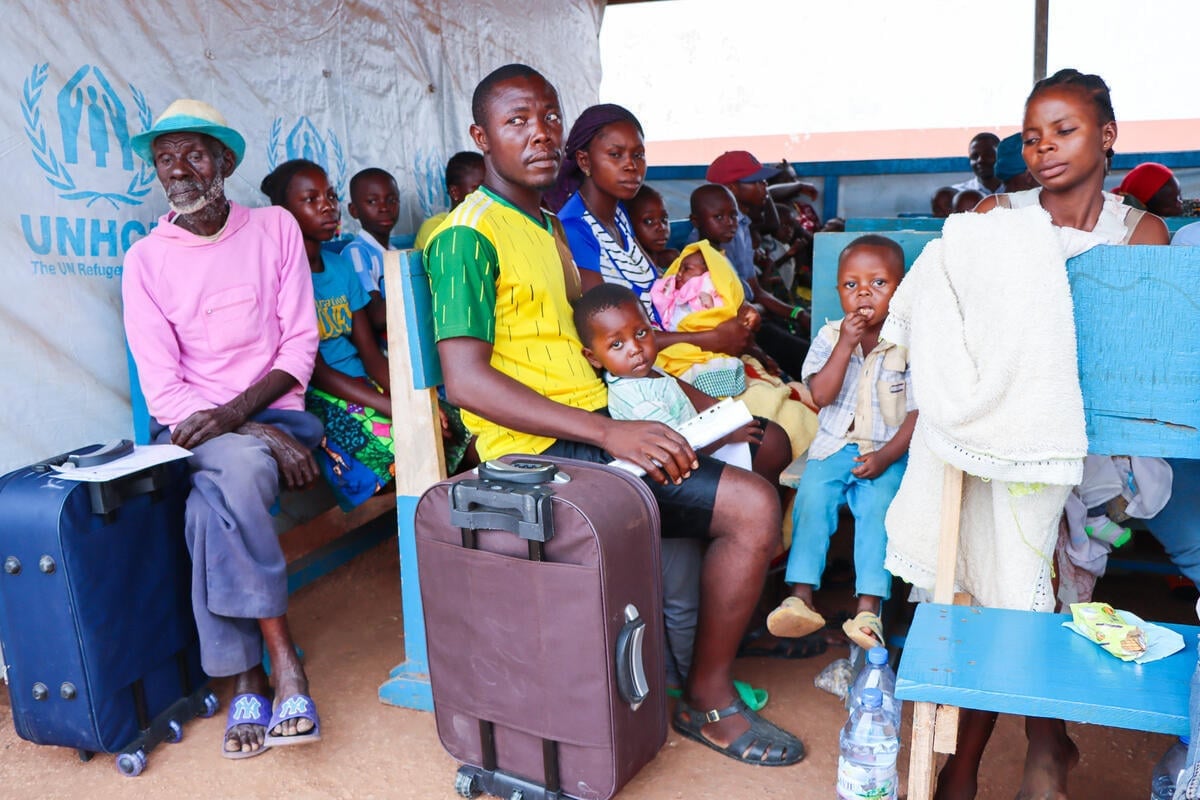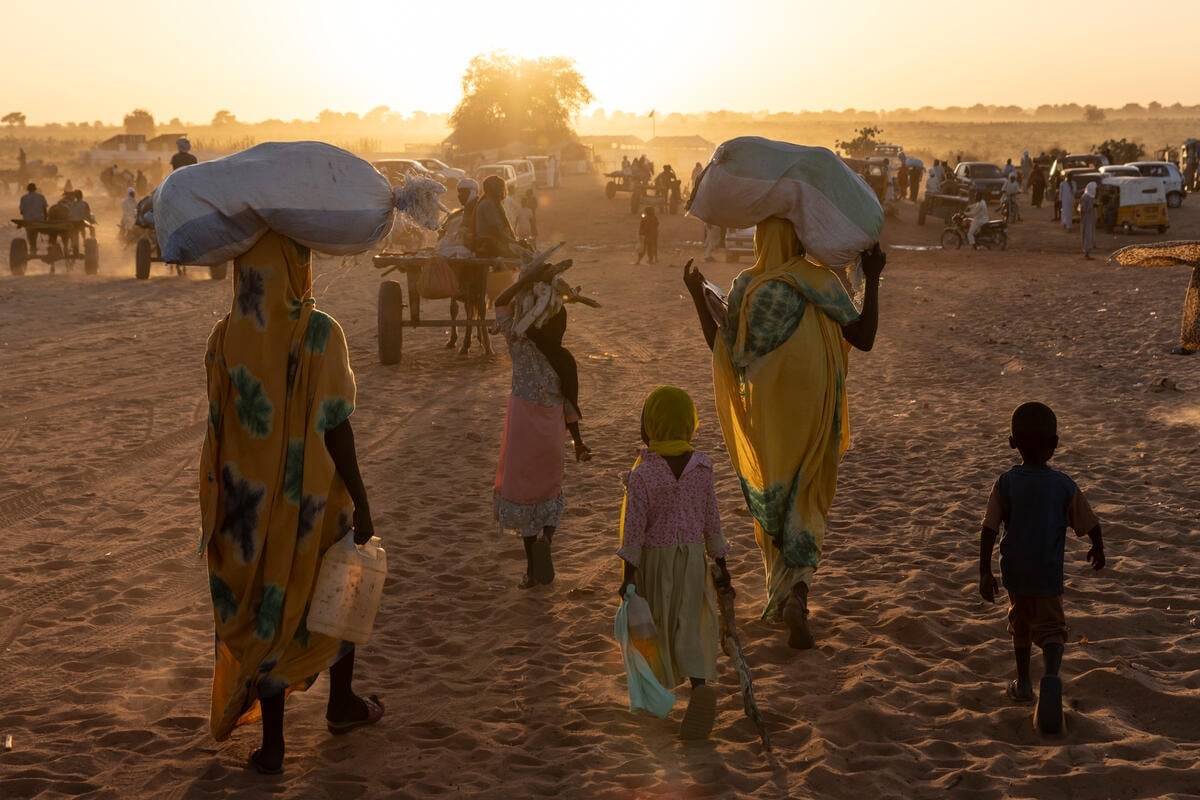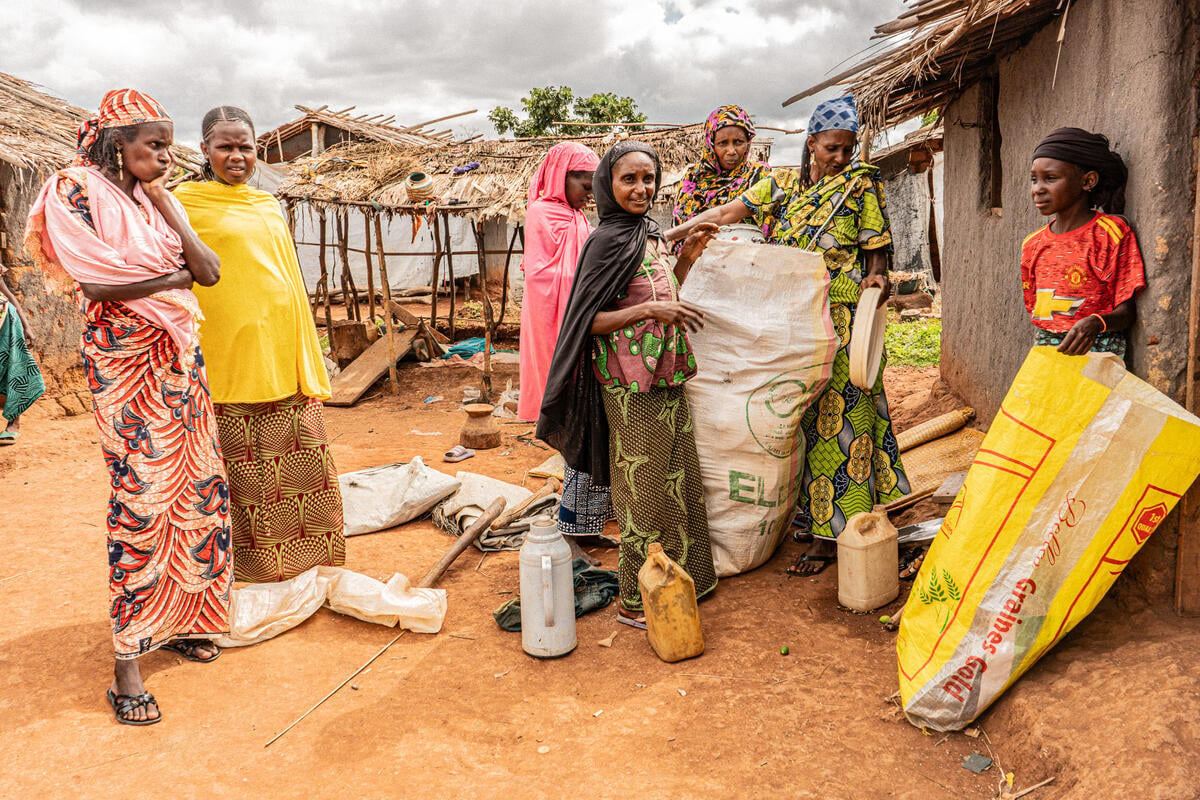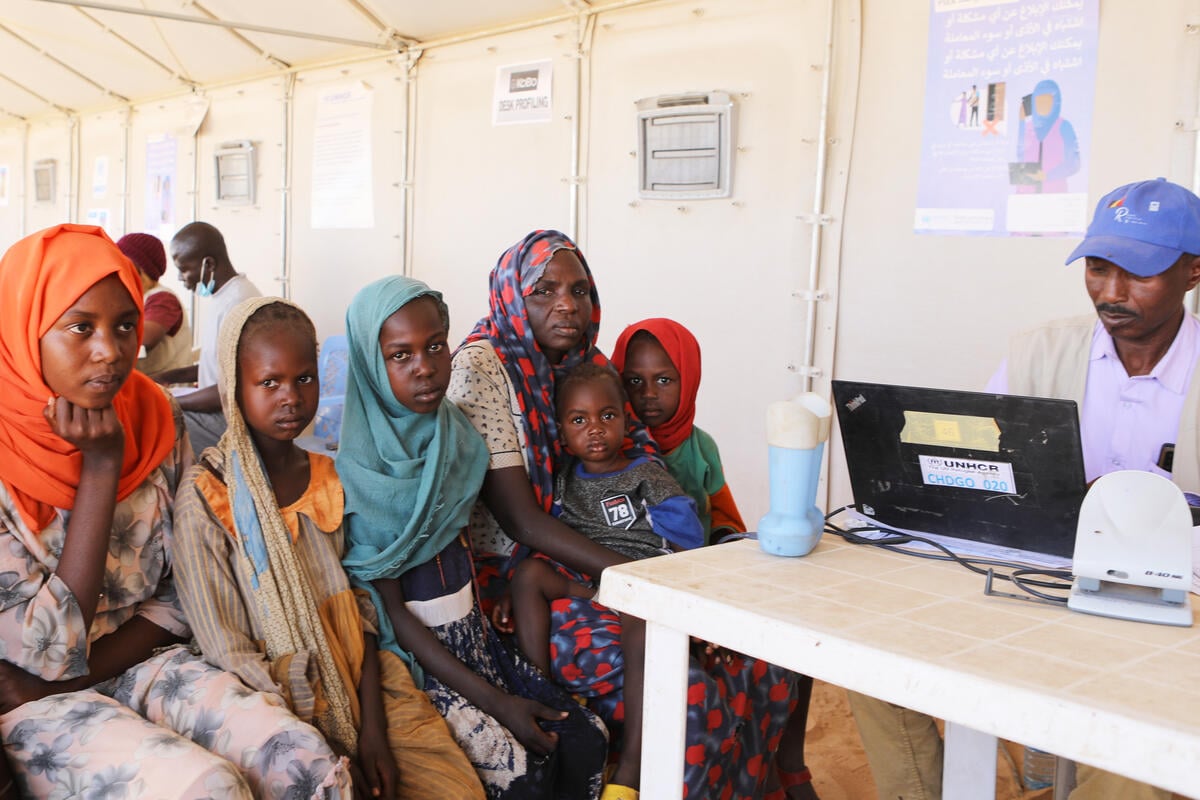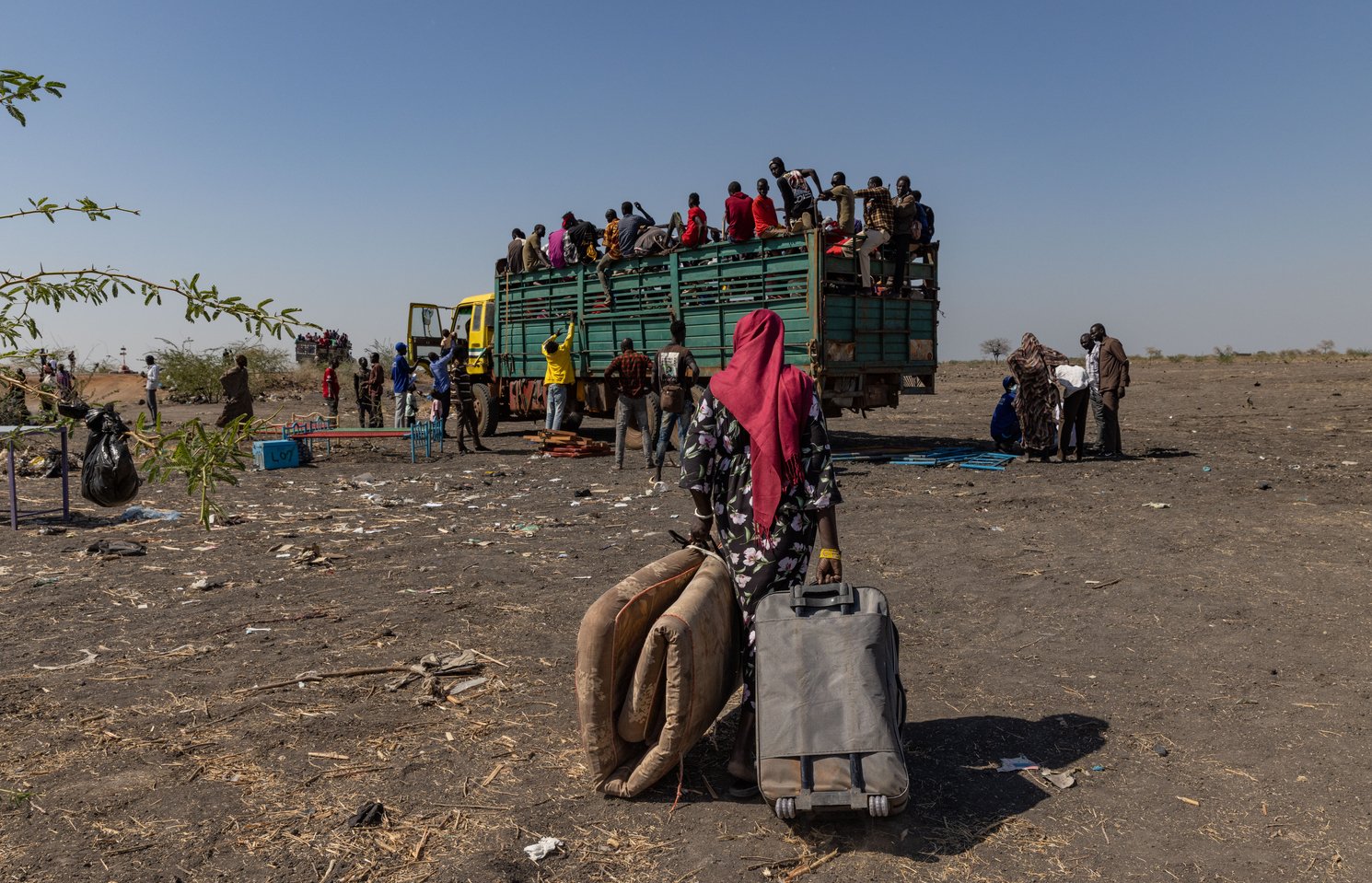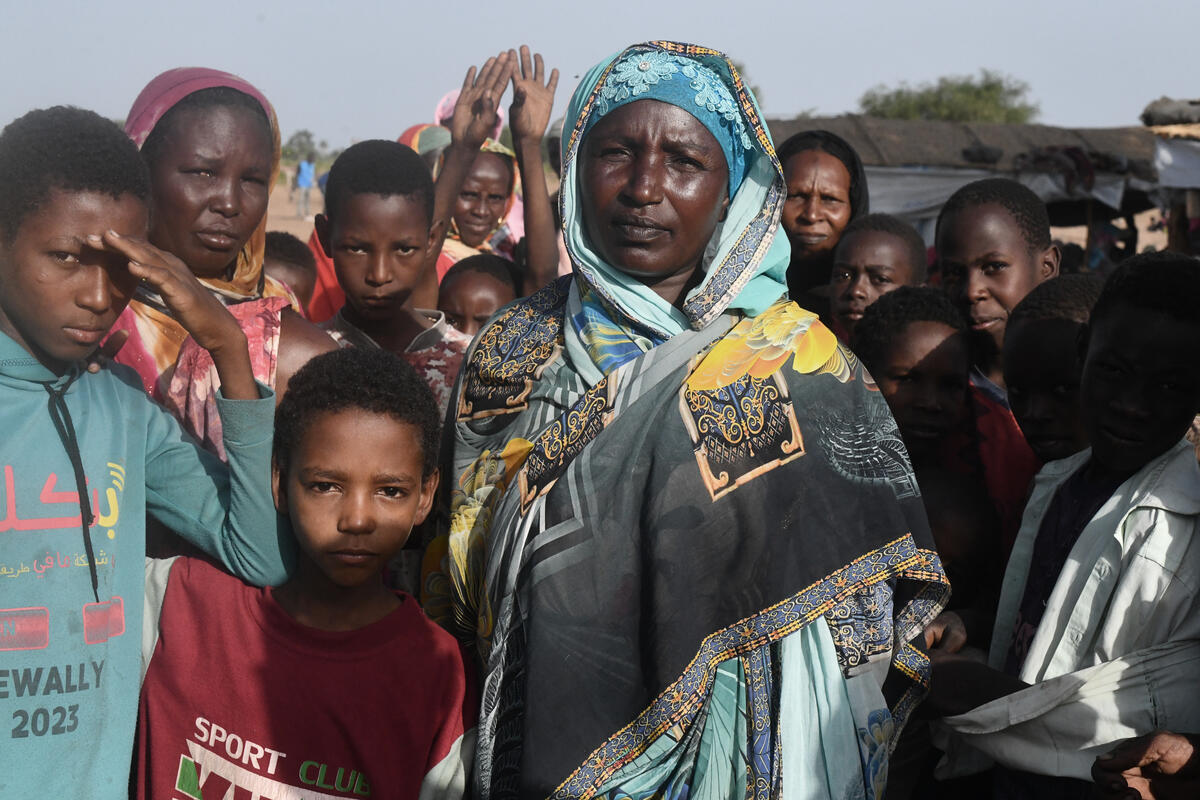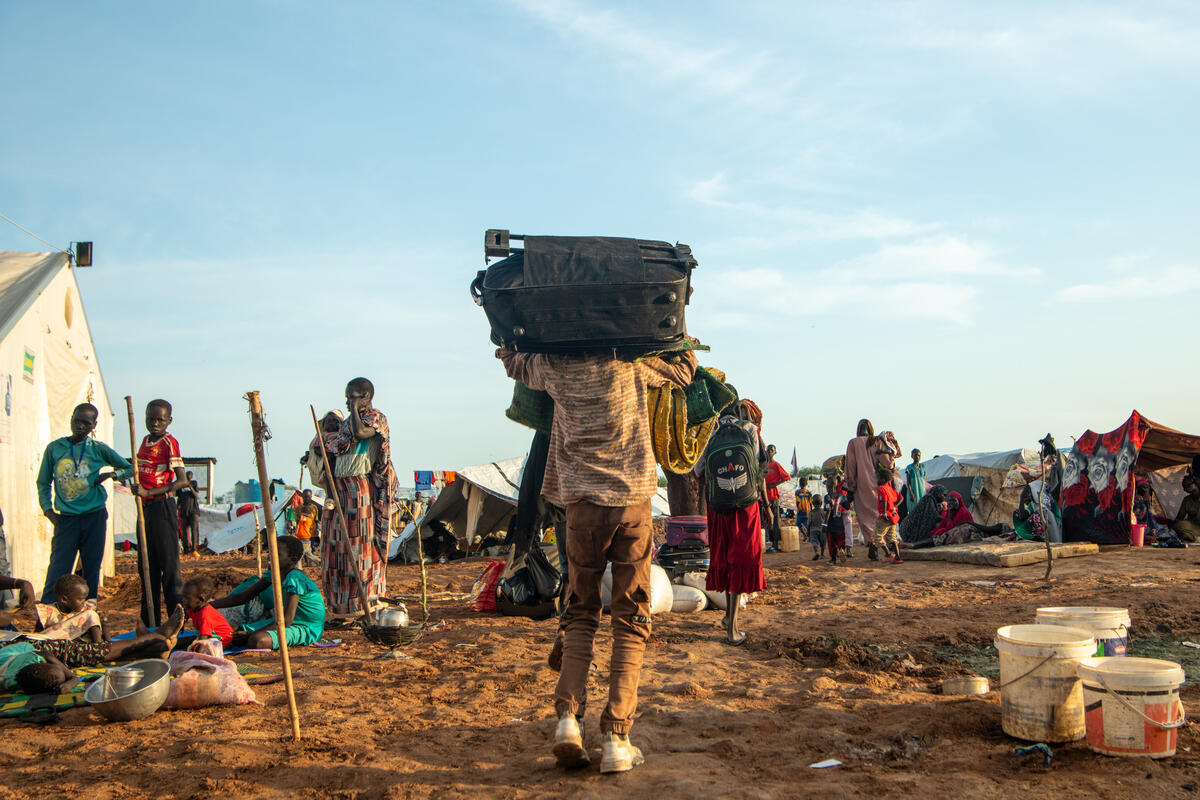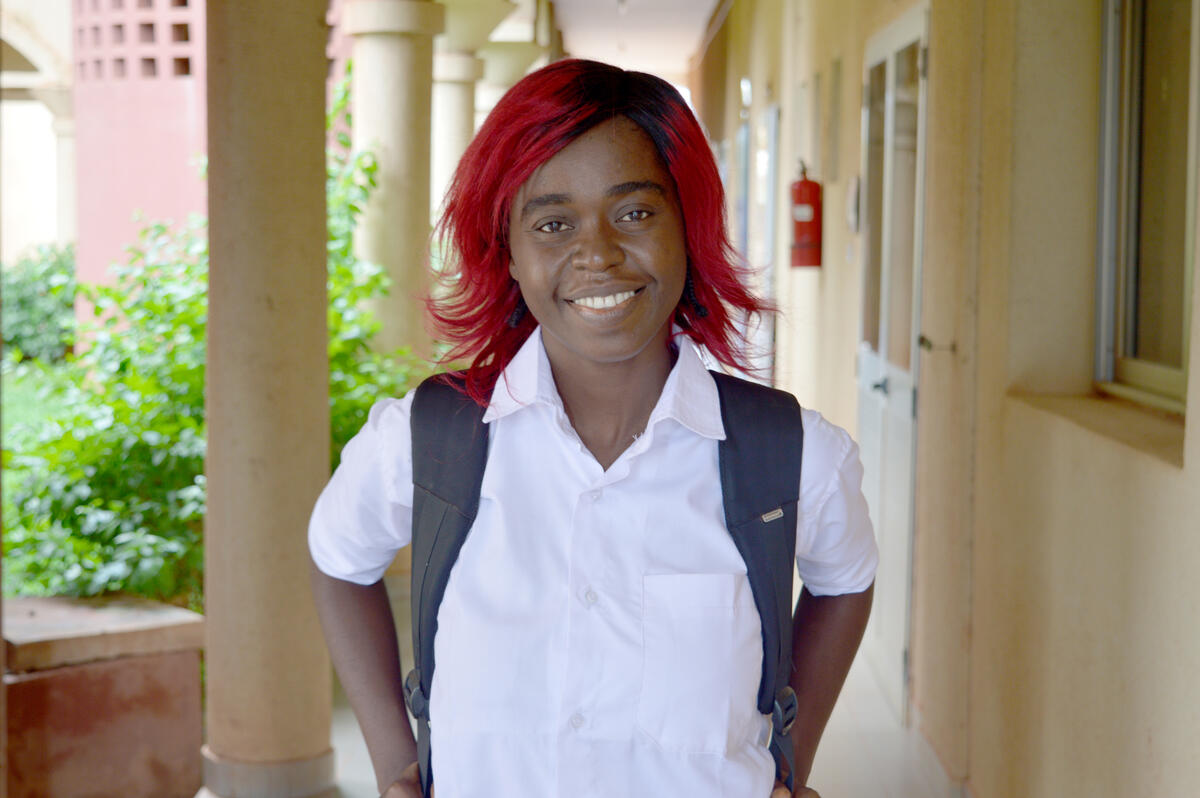UNHCR-led team visits destroyed ghost town of Birao in Central African Republic
UNHCR-led team visits destroyed ghost town of Birao in Central African Republic

BIRAO, Central African Republic, March 27 (UNHCR) - UN agencies and non-governmental organisations visited remote Birao in the far north-east of the Central African Republic (CAR) at the weekend and found the town in ruins and almost empty some three weeks after it was attacked by a militant group.
The UNHCR-led team visited Birao and the border town of Am Dafok to assess the situation in the area following the March 3-4 attack by the Union des Forces Démocratiques pour le Rassemblement (UFDR), which had also raided the town last October 30 and held it until ousted by government troops on November 27.
After the March attack, almost the entire population of 14,000 fled. The fighting was intense and devastating for Birao's inhabitants. More than 700 houses were burned, destroying vital stocks of food and seeds for the coming planting season.
The joint mission found that while some of the town's residents were slowly starting to return and had begun to reconstruct their homes, others were too afraid to come back. Some residents have fled to Am Dafok at the border with Sudan and some 2,000 to 3,000 inhabitants of the region have sought refuge in Sudan's Darfur region, where they are being helped with basic supplies by a joint UNHCR/NGO team.
"This is only the latest in a number of incidents that have forced massive numbers of civilians away from their homes," said Bruno Geddo, UNHCR's representative in CAR and head of the assessment mission. "Nevertheless, many of the displaced who remain in the CAR seem determined to come back to Birao as soon as they have gathered material to rebuild their houses."
Ramadane was among the few returnees. "I've lost 17 sacks of millet," he said, pointing to the blackened grains lying around his devastated house. "I took my family to a small village where we could stay with relatives. When we came back, everything was destroyed."
Another resident, who gave her name as Elise, said she only came to get food from her house during daylight hours. She said she was too afraid to stay overnight.
An estimated 212,000 people have been driven from their villages in the CAR. Another 70,000 have fled to Cameroon, Chad and now also to Sudan. Most of them have fled since September 2005, when the north-western town of Markounda was attacked by another militant group. House burning is common from Ouham-Pendé prefecture in the north-west of the country to Vakaga prefecture in the north-east.
UNHCR is conducting a campaign to raise awareness among the authorities of conflict-affected areas and to sensitise members of the security and armed forces on the basic human rights of internally displaced persons (IDPs). Five workshops have already been organised in the capital, Bangui, and the north-western towns of Bossangoa and Bozoum together with other humanitarian agencies.
UNHCR, together with NGOs working in CAR, is distributing clothing, mosquito nets and some basic household items to the displaced. However, there are major logistical challenges in assisting them as most are scattered in villages or in the bush.
In order to assist survivors of violence, UNHCR is putting in place a system to provide psycho-social and medical follow-up, including for victims of sexual violence, in Nana Grébizi prefecture in central-northern CAR. Through a network of humanitarian observers in the north-west, UNHCR is also closely monitoring the human rights situation and displacement movements.
Other humanitarian organisations in CAR, including the UN Children's Fund (UNICEF), the World Health Organisation (WHO), the World Food Programme (WFP), the Food & Agriculture Organisation (FAO), the International Rescue Committee, Solidarités, Médecins Sans Frontières, Caritas and Cooperazione Internazionale (COOPI), are involved in providing health care, drinking water, education and food, to address the urgent needs of the displaced population.
By Nicolas Rost in Birao, Central African Republic


